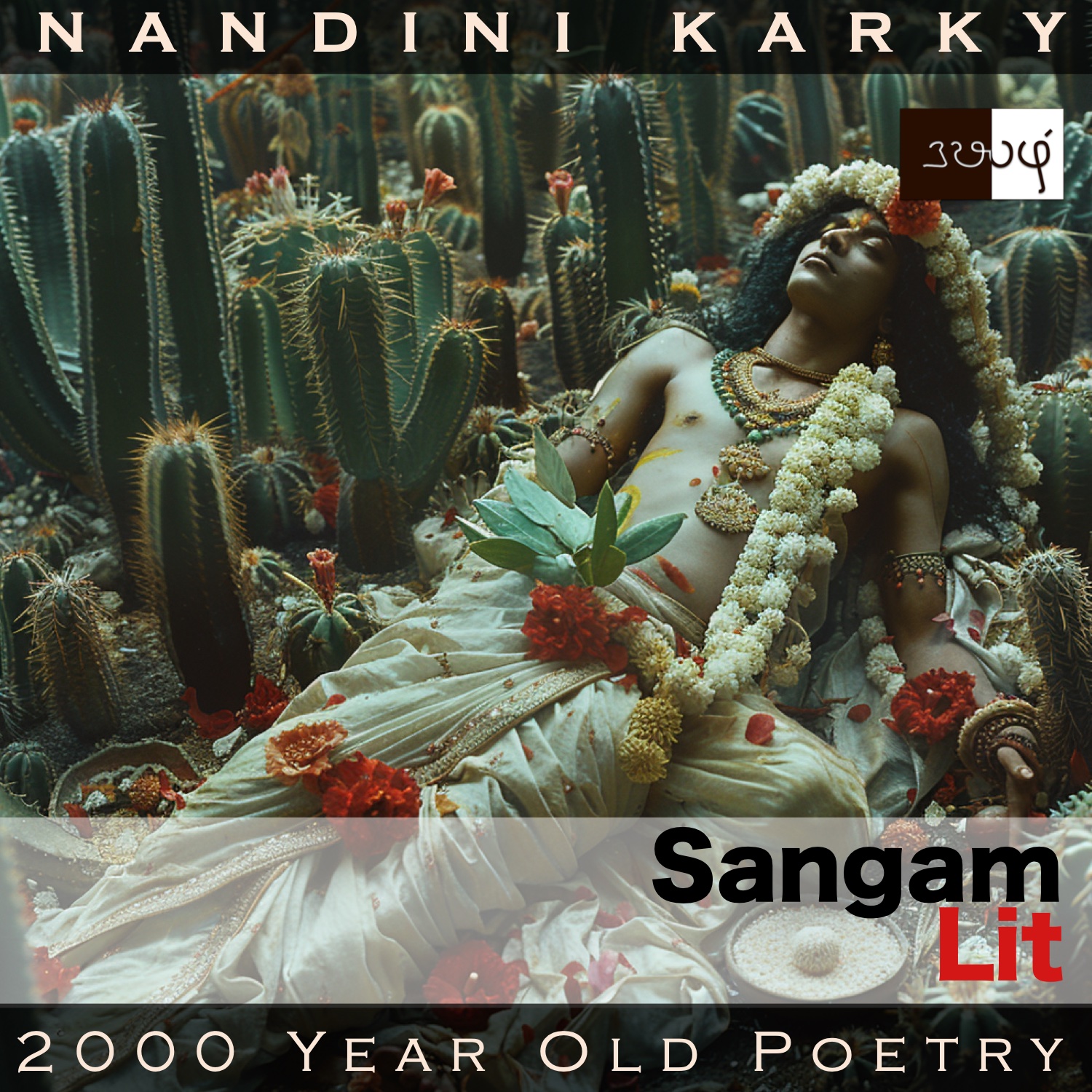Podcast: Play in new window | Download
Subscribe: Apple Podcasts | Spotify | Amazon Music | Android | iHeartRadio | Email | TuneIn | RSS | More
In this episode, we listen to words conveying the absoluteness of death, as depicted in Sangam Literary work, Puranaanooru 363, penned by the poet Aiyaathi Siruventheraiyaar. Set in the category of ‘Pothuviyal Thinai’ or ‘Common Themes’, the verse echoes the reality of life.

இருங் கடல் உடுத்த இப் பெருங் கண் மா நிலம்
உடையிலை நடுவணது இடை பிறர்க்கு இன்றி,
தாமே ஆண்ட ஏமம் காவலர்
இடு திரை மணலினும் பலரே; சுடு பிணக்
காடு பதி ஆகப் போகி, தம்தம்
நாடு பிறர் கொளச் சென்று மாய்ந்தனரே;
அதனால், நீயும் கேண்மதி அத்தை! வீயாது
உடம்பொடு நின்ற உயிரும் இல்லை;
மடங்கல் உண்மை மாயமோ அன்றே;
கள்ளி வேய்ந்த முள்ளிஅம் புறங்காட்டு,
வெள்ளில் போகிய வியலுள் ஆங்கண்,
உப்பு இலாஅ அவிப் புழுக்கல்
கைக்கொண்டு, பிறக்கு நோக்காது,
இழி பிறப்பினோன் ஈயப் பெற்று,
நிலம் கலனாக, இலங்கு பலி மிசையும்
இன்னா வைகல் வாராமுன்னே,
செய் நீ முன்னிய வினையே,
முந்நீர் வரைப்பகம் முழுது உடன் துறந்தே.
Pertinent words spoken to a king in the past, whose essence is relevant even today. The poet’s words can be translated as follows:
“In this vast land enveloped by huge seas, without even allowing an extent of space equivalent to the leaf of a ‘udai’ tree for others, they ruled it all themselves, those famous and possessive rulers. Indeed, they are more in number than the sands brought in by the roaring waves; In the end, they left to the burning cremation grounds, and as their own land was taken away by others, they perished.
And so, listen carefully! Never has life persisted on forever, without leaving the body; Death is the truth and there is no illusion.
To the grounds filled with cactus thorns, leaving on a bier, in those wide spaces, and receiving a ball of cooked rice sans salt, which is to be taken in the hand and without looking backwards, placed on the land as a vessel, as the cremator directs – even before such a terrible time when this shining sacrifice is placed before you, you should complete all that you wanted to do, foregoing this entire land surrounded by the three oceans!”
Let’s delve deeper into these words. The poet starts by talking about the nature of many kings saying they wouldn’t allow even a leaf-sized space of their kingdom for others to take over. By leaf, the poet is not talking about a generous banana tree leaf but rather the tree he mentions is an umbrella thorn tree and I smiled to see the minuscule size of these leaves. So possessive are those kings about their domain that they want to conquer it all and rule it all, the poet describes, and adds that they are more in number than the sands on the seashore. While that may be so, in the end, they all went to the same place – the cremation ground and left this world, as their precious kingdom was seized by others. This thought, the poet abstracts and says, in not a single person’s body, has life ever decided to remain forever. That is the stark truth, he declares.
After sharing these truths, the poet turns to the king he has been talking to and paints an image of the king’s death, where we see him being brought on a bier and the person performing the rituals prepares a ball of cooked rice without salt and places it on the land. Having painted this mental picture of his end, the poet advises the king saying before that fateful time comes, he must do all the right things and give up this attachment to worldly power and possessions.
In a nutshell, death is real; death comes for everyone, no matter how great and so, do the things your mind dreams of, says this verse. In this self-help book called ‘The Seven Habits of Highly Effective People’, it’s this ancient idea that is mentioned in the section that advises one to imagine one’s own funeral and write the words that will be spoken by others. There’s no connection between this poet and that author and it’s unlikely that modern author has read this ancient literature but ‘the powerful impact that seeing one’s own death has on one’s life’ is the unifying thought across space and time here!




Share your thoughts...